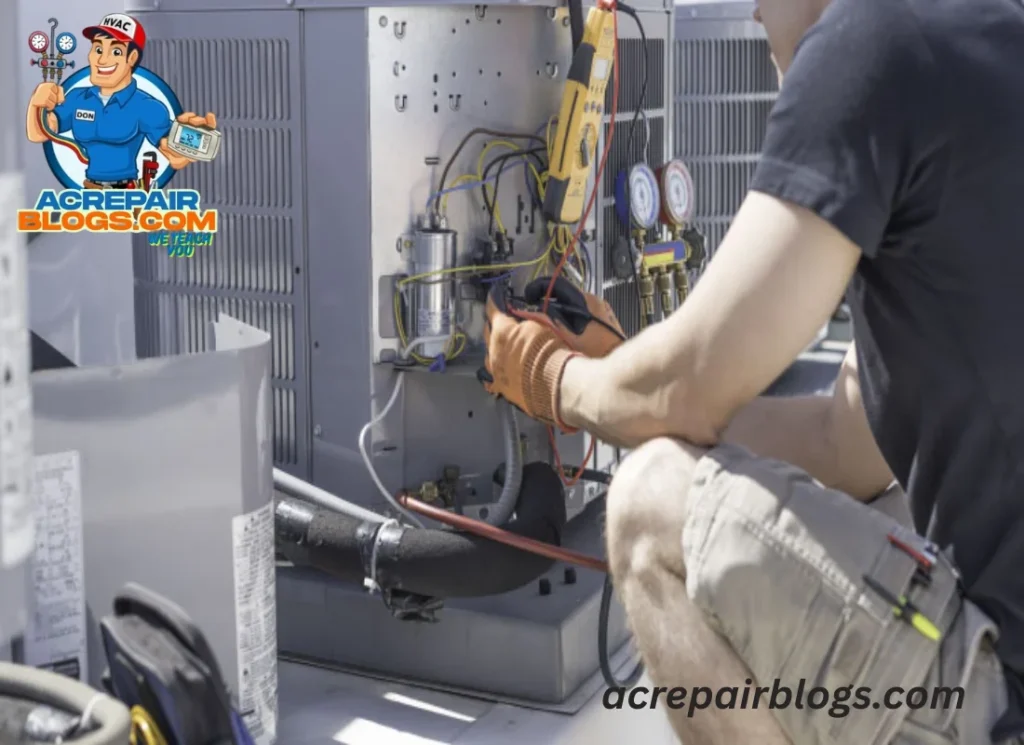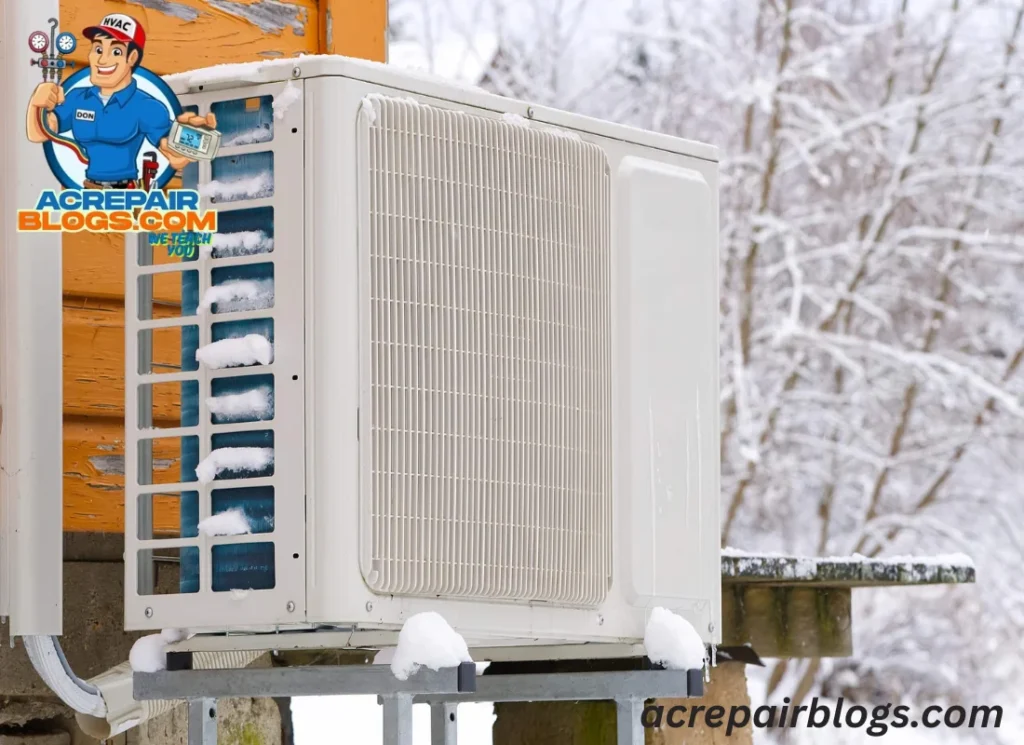How to Prepare Your AC for Winter: Complete Guide for Homeowners
Introduction
When the summer heat finally fades and chilly winter days begin to set in, your air conditioner is probably the last thing on your mind. A seasonal AC tune-up not only ensures that your cooling system is ready for next summer but also helps prevent damage during months of disuse.
This is not just about keeping your home warm in winter; it is about protecting one of your most valuable home systems year-round. But here’s the catch: properly preparing your AC for the off-season is one of the smartest things you can do to extend its lifespan, improve efficiency, and avoid costly repairs.
We will discuss everything you want to know about preparing your AC for winter. From maintenance steps to smart storage tips and even bonus summer AC tips for when the heat returns, consider this your complete homeowner’s playbook.

Why Preparing Your AC for Winter Matters
During cold weather, it is not necessary to see your AC, but neglecting it can lead to:
- Damage from Debris or Moisture: Ice, snow, and falling leaves can clog or damage outdoor units.
- Reduced Efficiency: Dust and dirt buildup in unused months impacts cooling performance.
- Shortened Lifespan: Skipping maintenance means your AC works harder when summer returns.
- Unexpected Repairs: Small issues left unchecked over winter can turn into major repair costs.
Think of a seasonal AC tune-up as insurance, an inexpensive way to protect a very expensive system.
Step 1: Schedule a Seasonal AC Tune-Up
Before you shut your AC down for winter, consider having a professional inspection.
What a Technician Will Do:
- Check refrigerant levels.
- Inspect electrical connections.
- Clean condenser coils.
- Lubricate moving parts.
- Test thermostat calibration.
- Identify any worn or failing components.
This seasonal AC tune-up not only ensures that your system is healthy going into winter but also prevents surprises when you power it back up in spring.
Step 2: Clean the Outdoor Unit (Condenser)
The outdoor condenser unit takes the brunt of seasonal weather changes.
Cleaning Checklist:
- Turn off the AC power supply.
- Clean the dust and debris from the unit.
- Gently hose down the fins to clear dust.
- Trim back shrubs or plants at least 2 to 3 feet away.
This can reduce the corrosion percentage and blockage of airflow in the unit.
Step 3: Change or Clean the Air Filter
Air filters should be replaced every 1 to 3 months, but doing it right before winter has added benefits.
- Keeps the air cleaner during the heating season.
- It stops dust from entering the duct unit.
- Reduces strain when you switch back to cooling.
Clean filters are a simple yet powerful way to support both your AC and your furnace.
Step 4: Inspect and Seal Ductwork
One of the major reasons for energy waste is a leaky unit. Before shutting down your AC:
- Inspect for visible cracks or leaks.
- Use foil-backed tape (not duct tape) for minor fixes.
- Call a pro for larger duct sealing needs.
Step 5: Protect the Outdoor Unit for Winter
One of the most important steps in winterizing your AC is protecting the outdoor condenser.
How to Do It Right:
- Cover the Unit: Use a breathable AC cover to keep out snow, ice, and debris. Avoid airtight covers that trap moisture.
- Insulate Pipes: Foam insulation sleeves protect exposed refrigerant lines from freezing.
- Elevate if Needed: Place the unit in the top place in flooded areas.
Step 6: Switch Off the Power Supply
Most outdoor AC units have a power switch or disconnect box nearby. Turning it off prevents accidental activation during winter, which could damage the system if ice or snow is inside.
Step 7: Clear and Secure Indoor Components
Your indoor system also deserves attention:
- Vacuum around vents and registers.
- Ensure the condensate drain is clear.
- Check for unusual noises or smells before shutting it down.
This ensures your AC system is stable and ready for storage.
Step 8: Winterize Window or Portable Units (If Applicable)
For homeowners with window or portable ACs:
- Remove units from windows and store indoors.
- Clean and dry thoroughly to prevent mold.
- Seal windows properly after removing units.
Portable and window ACs are more vulnerable to weather damage, so extra care here pays off.
Bonus Section: Summer AC Tips for Next Year
While preparing your AC for winter, it is also smart to think ahead about next summer. These summer AC tips will help your system perform better when the heat returns:
- Schedule Early Maintenance: Do not wait until peak summer. Book a tune-up in spring.
- Check Insulation: With the right insulation, cool air can come in and hot air can blow out.
- Use Ceiling Fans: Improve circulation to reduce the load on your AC.
- Upgrade Your Thermostat: Smart thermostats are very efficient for comfort.
- Shade the Condenser: Keep outdoor units out of direct sunlight for improved efficiency.
You make sure the comfort by integrating seasonal AC tune-ups with smart summer AC tips.
Common Mistakes to Avoid When Preparing Your AC for Winter
- Skipping Maintenance: Small issues often become expensive repairs later.
- Using Plastic Covers: Traps moisture and encourages rust.
- Leaving Debris Around the Unit: Attracts pests and blocks airflow.
- Forgetting to Switch Off the Power: It can cause accidental winter operation.
- Ignoring Duct Leaks: Leads to wasted energy in both winter and summer.
Future of AC Maintenance: Smart Technology
With smart HVAC systems on the rise, winter preparation is becoming more advanced. Many smart thermostats and AC units now offer:
- Self-diagnostics that alert you before issues occur.
- Remote monitoring via smartphone apps.
- Predictive maintenance based on real-time usage patterns.
These transformations clear seasonal AC tune-ups and make it easier to keep systems healthy.
Conclusion
Preparing your AC for winter is one of the most overlooked, but most valuable steps you can take as a homeowner. From Planning a seasonal AC tune-up to cleaning, covering, and securing both indoor and outdoor components, every step helps protect your investment and ensure top performance when summer rolls back around.
Pair these winterizing tips with proactive summer AC tips, and you will enjoy:
- Lower energy bills.
- Longer AC lifespan.
- Improved comfort year-round.
- Fewer emergency repairs.
Do not let your AC shut off without a little care. Little care and seasonal maintenance can save you money and let the unit work properly.
